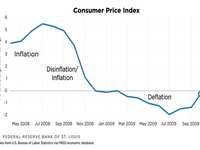- Categories :
- More
After the Mission: What’s Next for Healthcare Leaders?

When the Mission Becomes the Weight
What happens when the mission that once fueled you becomes the weight you can no longer carry?
We don’t talk enough about leadership fatigue in mission-driven sectors—especially among those who’ve carried the responsibility for decades. These are the leaders who stood at the helm during crises, advocated for patients and providers alike, and bore the unseen burden of moral and organizational decisions.
I’ve had the privilege of sitting with many such healthcare leaders at inflection points—when the dust finally settles, and a quiet, complicated question surfaces: “What now?”
The Weight of Doing Good
Leading in healthcare isn’t just about operational effectiveness. It’s about people, purpose, and a deeply personal sense of responsibility. The decisions aren’t abstract—they affect real lives, every day. And that weight compounds over time.
Burnout doesn’t only appear in emergency rooms or on patient floors. It manifests in the C-suite too, where years of high-stakes decision-making can leave leaders emotionally drained, even as they continue showing up fully for their teams.
Many find themselves wondering:
-
“Can I keep doing this?”
-
“Do I want to?”
-
“Am I allowed to feel this way?”
These questions are rarely voiced publicly—but they’re real, and increasingly common.
When Identity Outlasts Capacity
One of the most common sentiments I hear is: “I can still do it. I’m just not sure I want to.”
This is a profound—and often lonely—crossroads. On one hand, there’s a strong sense of duty. On the other, a growing awareness that something has shifted internally.
For leaders who have long defined themselves by the mission, stepping away can feel like betrayal. But it doesn’t have to be. It can be an act of stewardship—a way to ensure the mission endures beyond one person’s tenure.
Letting go is not the same as walking away. It can be an intentional, values-driven transition.
Clarity Isn’t Selfish—It’s Strategic
In the high-pressure world of healthcare leadership, carving out space for personal reflection can feel like a luxury—or even a risk. But it’s not. It’s a strategic move that the best leaders prioritize.
The most resilient transitions I’ve seen happen when leaders ask deeper, non-operational questions:
-
What values do I want to protect, even as I step away?
-
Who am I if I’m not in this role?
-
What does purpose look like now?
These are not signs of weakness. They’re signs of wisdom—of a leader ready to influence from a different position, or with a different rhythm.
This reflection doesn’t just benefit the individual—it strengthens the organization by fostering a culture where intentional succession is normalized, not feared.
You Are Not Alone
If you’re a healthcare executive quietly wrestling with the possibility of transition, know this: you are not alone.
More leaders than ever are reevaluating their next chapter—not because they’ve failed, but because they’ve given everything they could. And now, it’s time to reimagine what contribution can look like without burning out.
Sometimes, the most generous thing a leader can do is create space—for themselves, and for what (and who) comes next.
At Avion Wealth, we help mission-driven leaders navigate life after leadership—with clarity, discretion, and care.
Whether you’re planning a formal succession, exploring semi-retirement, or simply beginning to consider what “next” might mean, we’re here to help you chart that path thoughtfully.
To your success,
Paul J. Carroll, CFP®















